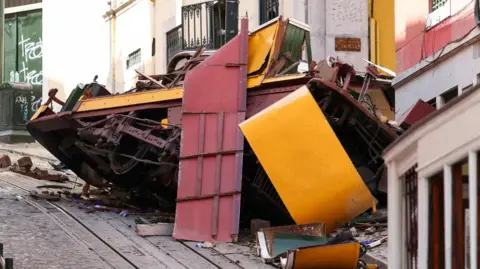In a shocking case that has captivated the attention of Germany and beyond, a Berlin palliative care doctor has been charged with the murder of 15 patients, raising alarm about the safety mechanisms in palliative care settings. The 40-year-old doctor, whose name has not been revealed in line with German privacy laws, is suspected of administering lethal combinations of narcotics and muscle relaxants to sedate his patients, ultimately resulting in their deaths. Beyond these charges, authorities are investigating an additional 75 patient deaths under suspicious circumstances.
If found guilty of the murders, this doctor could become one of the most notorious serial killers in European history, rivalling a former German nurse who was convicted of killing at least 85 patients two decades ago. Prosecutors allege that he not only took the lives of those in his care but also attempted to cover his tracks, including setting fires to patient homes and misleading emergency responders about the circumstances of the deaths.
As the case unfolds, serious concerns have emerged about the oversight of medical professionals within palliative care. The implications of the case elicit a broader discourse on accountability in healthcare, particularly for those entrusted with the care of vulnerable individuals. The maximum penalty for a murder conviction in Germany is life imprisonment, although this case's unusual nature has led prosecutors to request the possibility of post-sentence detention for public safety.
Currently held in Moabit Prison, the doctor has been in custody since August 2024 after being arrested on suspicions related to the deaths of four patients. Ongoing investigations have uncovered a wider pattern that could implicate him in many more tragic cases, highlighting the potential systemic issues within the healthcare system and the critical importance of safeguarding the most vulnerable patients. As details continue to emerge, the conversation around ethics in palliative care remains at the forefront of public discourse, with calls for a reassessment of practices and regulations to prevent future tragedies.




















